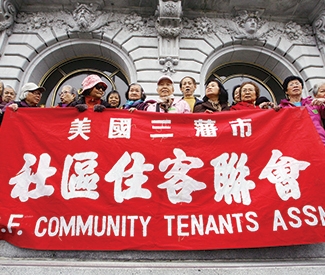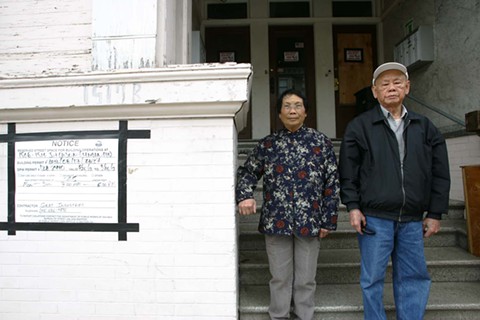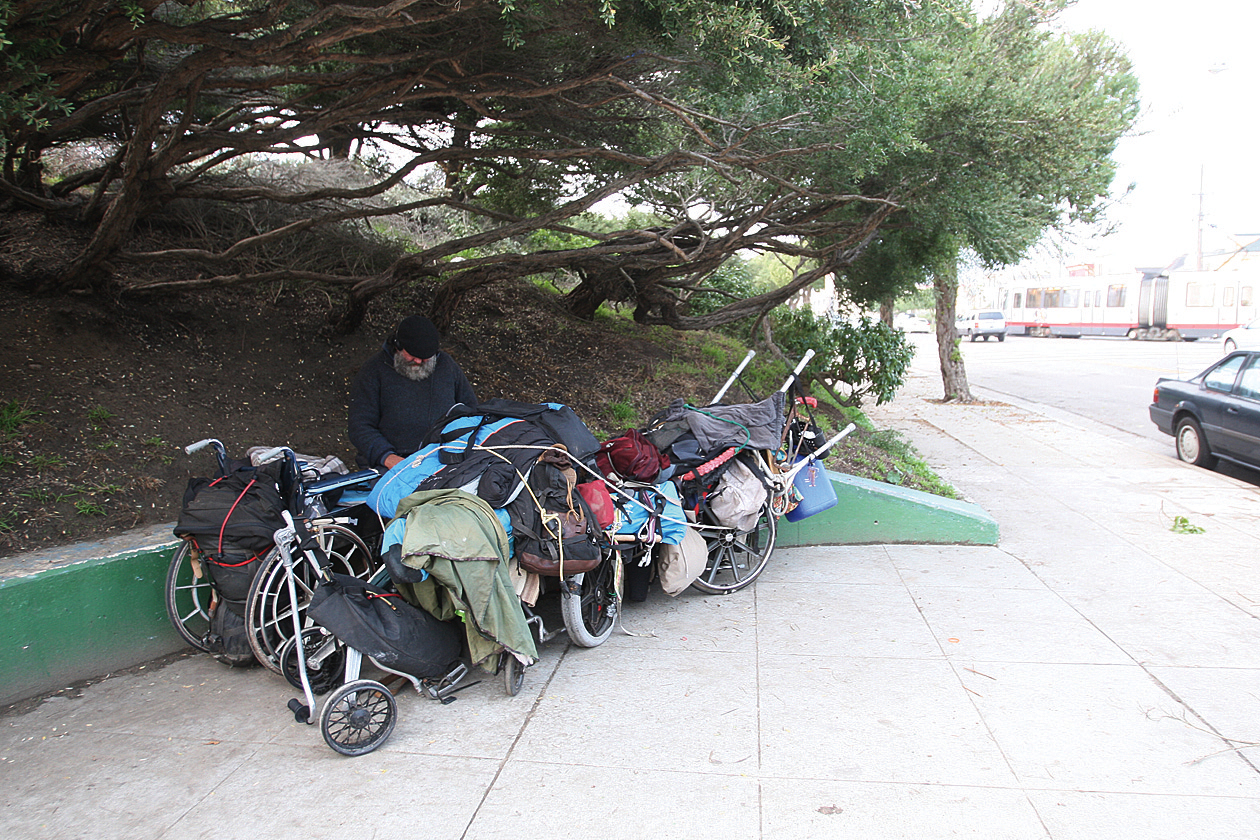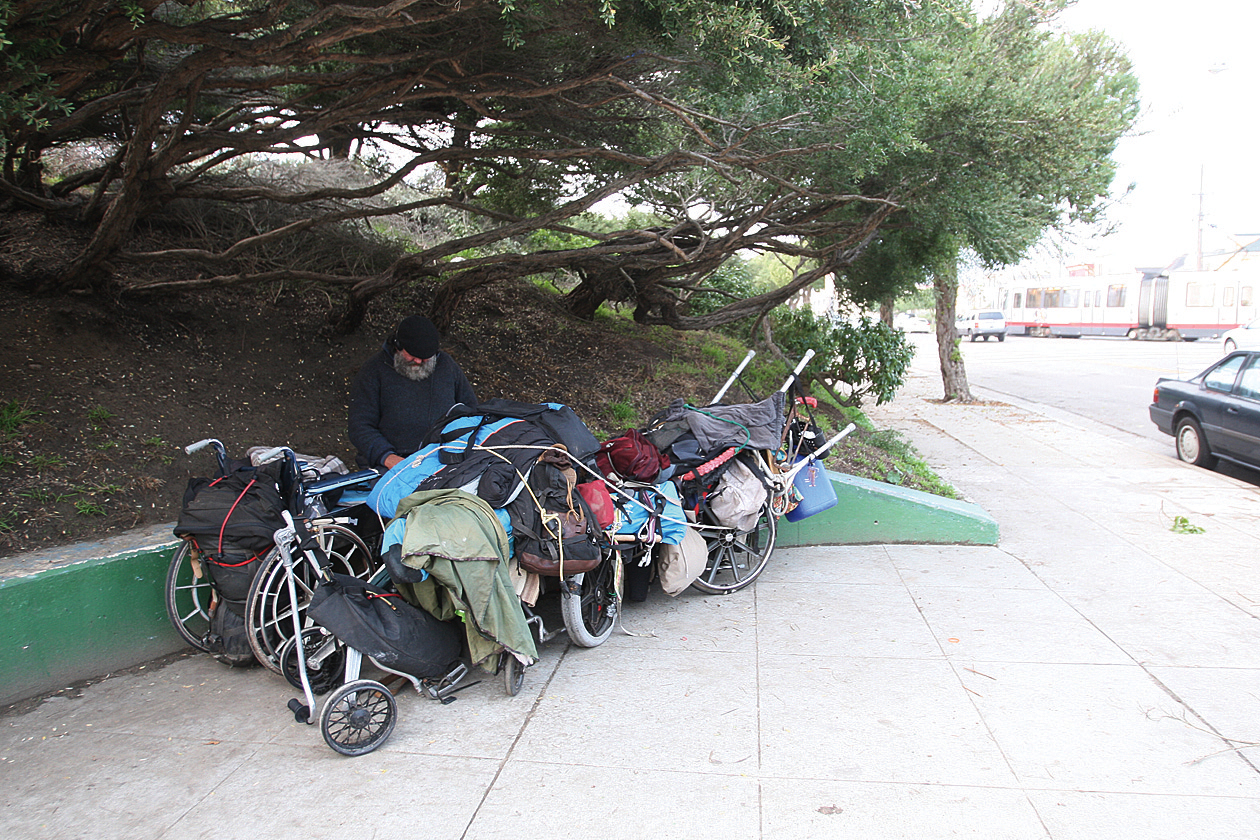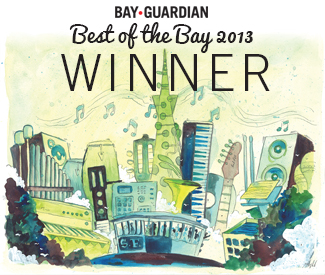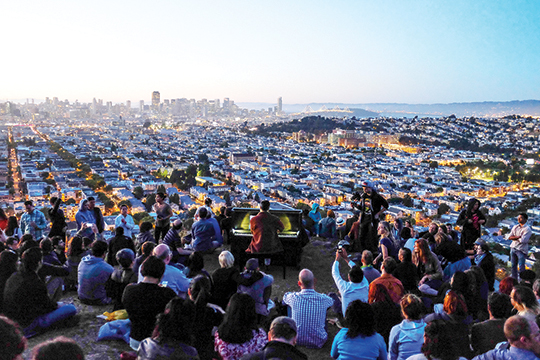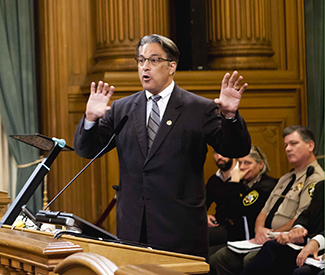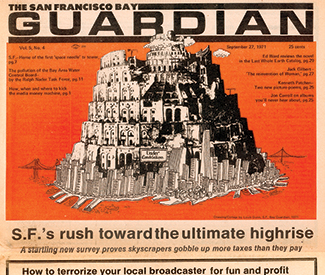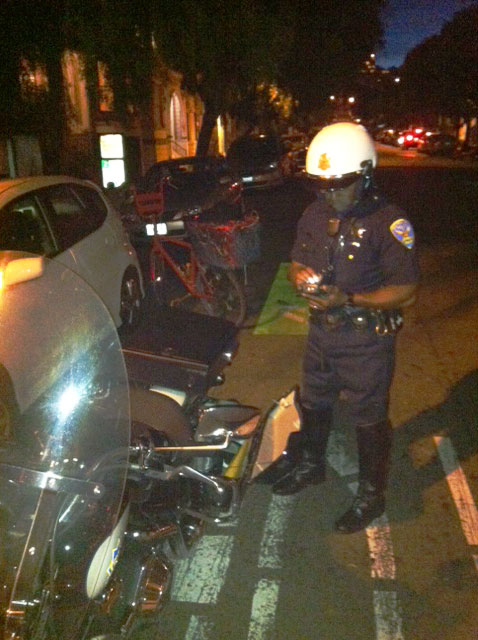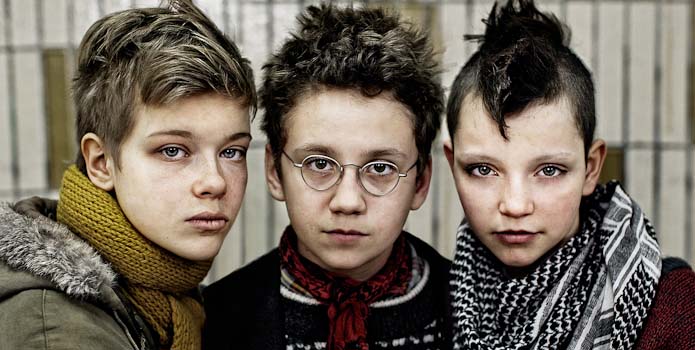WEDNESDAY 23
ROCK
Amoeba Music: 1855 Haight, San Francisco. Best Coast, 5 p.m., free.
Bottom of the Hill: 1233 17th St., San Francisco. Thunderegg, On Telegraph, Jared Cohen & The Future Proof, 9 p.m., $8.
Brick & Mortar Music Hall: 1710 Mission, San Francisco. Leagues, The Dig, 8 p.m., $10-$12.
DNA Lounge: 375 11th St., San Francisco. Supersuckers, Hellbound Glory, The Devil in California, 8 p.m., $15-$20.
Hemlock Tavern: 1131 Polk, San Francisco. Young Moon, Feelings, Sandy’s, 8:30 p.m., $6.
Hotel Utah: 500 Fourth St., San Francisco. Golden Youth, Venus Beltran, Books on Fate, Slow Cult, 8:30 p.m., $7.
The Independent: 628 Divisadero, San Francisco. Oh Land, Sun Rai, 8 p.m., $15.
Make-Out Room: 3225 22nd St., San Francisco. Chief, Major Lifts, Cougar on a Meth Binge, 7:30 p.m., $8.
Milk Bar: 1840 Haight, San Francisco. The Tambo Rays, The She’s, Street Joy, 8:30 p.m., $5.
Rickshaw Stop: 155 Fell, San Francisco. NoNoNo, Helado Negro, DJ Aaron Axelsen, 9 p.m., $13-$15.
Slim’s: 333 11th St., San Francisco. Au Revoir Simone, Genius, CALLmeKAT, 8 p.m., $16.
Yoshi’s San Francisco: 1330 Fillmore, San Francisco. Leon Russell, 8 p.m., $39.
DANCE
The Cafe: 2369 Market, San Francisco. “Sticky Wednesdays,” w/ DJ Mark Andrus, 8 p.m., free.
Cat Club: 1190 Folsom, San Francisco. “Bondage A Go Go,” w/ DJs Damon, Tomas Diablo, & guests, 9:30 p.m., $5-$10.
Club X: 715 Harrison, San Francisco. Electro Fright Rocks V, 18+ dance party with Ookay, B33, Dead Sequitur, Krishna, more, 9 p.m., $10-$20.
Edinburgh Castle: 950 Geary, San Francisco. “1964,” w/ DJ Matt B & guests, Second and Fourth Wednesday of every month, 10 p.m., $2.
Elbo Room: 647 Valencia, San Francisco. “Bodyshock,” w/ Ssleeper Hold, Troller, Justin Anastasi, DJ Crackwhore, DJ Unit 77, 9 p.m., $7.
The EndUp: 401 Sixth St., San Francisco. “Tainted Techno Trance,” 10 p.m.
F8: 1192 Folsom St., San Francisco. “Housepitality,” w/ Sety, Nick Williams, Sharon Buck, Jerry Nice, 9 p.m., $5-$10.
Harlot: 46 Minna, San Francisco. “Qoöl,” 5 p.m.
Infusion Lounge: 124 Ellis, San Francisco. “Indulgence,” 10 p.m.
Lookout: 3600 16th St., San Francisco. “What?,” w/ resident DJ Tisdale and guests, 7 p.m., free.
Madrone Art Bar: 500 Divisadero, San Francisco. “Rock the Spot,” 9 p.m., free.
MatrixFillmore: 3138 Fillmore, San Francisco. “Reload,” w/ DJ Big Bad Bruce, 10 p.m., free.
Monarch: 101 6th St., San Francisco. “Mushroom Jazz,” w/ Mark Farina, J-Boogie, 9:30 p.m., $10-$20.
Q Bar: 456 Castro, San Francisco. “Booty Call,” w/ Juanita More, Joshua J, guests, 9 p.m., $3.
HIP-HOP
Double Dutch: 3192 16th St., San Francisco. “Cash IV Gold,” w/ DJs Kool Karlo, Roost Uno, and Sean G, 10 p.m., free.
Skylark Bar: 3089 16th St., San Francisco. “Mixtape Wednesday,” w/ resident DJs Strategy, Junot, Herb Digs, & guests, 9 p.m., $5.
ACOUSTIC
Bazaar Cafe: 5927 California, San Francisco. William Robert & Esteban Warren, 7 p.m.
Cafe Divine: 1600 Stockton, San Francisco. Craig Ventresco & Meredith Axelrod, 7 p.m., free.
Cafe Du Nord: 2170 Market, San Francisco. Stephen Kellogg, Fort Atlantic, 8:30 p.m., $20.
Club Deluxe: 1511 Haight, San Francisco. Happy Hour Bluegrass, 6:30 p.m., free.
Fiddler’s Green: 1333 Columbus, San Francisco. Terry Savastano, Every other Wednesday, 9:30 p.m., free/donation.
Pier 23 Cafe: Pier 23, San Francisco. Todos Santos, 6 p.m., free.
JAZZ
Amnesia: 853 Valencia, San Francisco. Gaucho, Eric Garland’s Jazz Session, The Amnesiacs, 7 p.m., free.
Burritt Room: 417 Stockton St., San Francisco. Terry Disley’s Rocking Jazz Trio, 6 p.m., free.
Jazz Bistro At Les Joulins: 44 Ellis, San Francisco. Charles Unger Experience, 7:30 p.m., free.
Le Colonial: 20 Cosmo, San Francisco. The Cosmo Alleycats featuring Ms. Emily Wade Adams, 7 p.m., free.
Oz Lounge: 260 Kearny, San Francisco. Hard Bop Collective, 6 p.m., free.
Revolution Cafe: 3248 22nd St., San Francisco. Michael Parsons Trio, Every other Wednesday, 8:30 p.m., free/donation.
The Royal Cuckoo: 3202 Mission, San Francisco. Charlie Siebert & Chris Siebert, 7:30 p.m., free.
Savanna Jazz Club: 2937 Mission, San Francisco. “Cat’s Corner,” 9 p.m., $10.
Sheba Piano Lounge: 1419 Fillmore, San Francisco. Jesse Foster, 8 p.m.
Top of the Mark: One Nob Hill, 999 California, San Francisco. Ricardo Scales, Wednesdays, 6:30-11:30 p.m., $5.
Zingari: 501 Post, San Francisco. Anya Malkiel, 7:30 p.m., free.
INTERNATIONAL
Bissap Baobab: 3372 19th St., San Francisco. Timba Dance Party, w/ DJ WaltDigz, 10 p.m., $5.
Cafe Cocomo: 650 Indiana, San Francisco. “Bachatalicious,” w/ DJs Good Sho & Rodney, 7 p.m., $5-$10.
Pachamama Restaurant: 1630 Powell, San Francisco. “Cafe LatinoAmericano,” 8 p.m., $5.
BLUES
Biscuits and Blues: 401 Mason, San Francisco. J.W. Jones, 7 & 9 p.m., $15.
The Saloon: 1232 Grant, San Francisco. Craig Horton, 9:30 p.m.
EXPERIMENTAL
Center for New Music: 55 Taylor St., San Francisco. New Music from the Mills College Center for Contemporary Music, 8 p.m., $10-$15.
The Knockout: 3223 Mission, San Francisco. “Sing Out,” w/ Fred Frith/Patrice Scanlon Duo, Grex, Dominique Leone, 9:30 p.m., $7-$10.
THURSDAY 24
ROCK
Bottom of the Hill: 1233 17th St., San Francisco. Earthless, Joy, Hot Lunch, 9 p.m., $12.
Brick & Mortar Music Hall: 1710 Mission, San Francisco. Annie Girl & The Flight, Everyone Is Dirty, Lee Gallagher & The Hallelujah, 9 p.m., $7.
S.F. Eagle: 398 12th St., San Francisco. Thursday Nite Live: Ash Reiter, The Visibles, The Electric Magpie, 9 p.m., $7.
Hemlock Tavern: 1131 Polk, San Francisco. Cool Ghouls, Neighbors, Satan Wriders, 8:30 p.m., $6.
The Independent: 628 Divisadero, San Francisco. Rusted Root; Goodnight, Texas; Lorne & The Wayhighs, 8 p.m., $25.
The Knockout: 3223 Mission, San Francisco. The Welcome Matt, The Jaded, Your Cannons, 6:30 p.m., free with RSVP; Electric Shepherd, Wild Eyes, Mystery Ship, 10 p.m., $6.
Monarch: 101 6th St., San Francisco. O Presidente, Spider Heart, The Shape, Secret Town, 8 p.m., $8.
Rickshaw Stop: 155 Fell, San Francisco. “Popscene,” w/ Night Terrors of 1927, Parade of Lights, Basic Vacation, Aaron Axelsen, Miles the DJ, 9 p.m., $10-$12.
Thee Parkside: 1600 17th St., San Francisco. Tav Falco & The Panther Burns, Big Tits, Lonesome Shack, 9 p.m., $12.
DANCE
Abbey Tavern: 4100 Geary, San Francisco. DJ Schrobi-Girl, 10 p.m., free.
Audio Discotech: 316 11th St., San Francisco. “Phonic,” w/ Morten, Lucas Med, Lorentzo, Brenn Wilson, Zoe Parties, 9:30 p.m.
Aunt Charlie’s Lounge: 133 Turk, San Francisco. “Tubesteak Connection,” w/ DJ Bus Station John, 9 p.m., $5-$7.
The Cafe: 2369 Market, San Francisco. “¡Pan Dulce!,” 9 p.m., $5.
Cat Club: 1190 Folsom, San Francisco. “Throwback Thursdays,” ‘80s night with DJs Damon, Steve Washington, Dangerous Dan, and guests, 9 p.m., $6 (free before 9:30 p.m.).
The Cellar: 685 Sutter, San Francisco. “XO,” w/ DJs Astro & Rose, 10 p.m., $5.
Club X: 715 Harrison, San Francisco. “The Crib,” 9:30 p.m., $10, 18+.
Elbo Room: 647 Valencia, San Francisco. “Afrolicious,” w/ DJs Pleasuremaker, Señor Oz, and live guests, 9:30 p.m., $5-$8.
Infusion Lounge: 124 Ellis, San Francisco. “I Love Thursdays,” 10 p.m., $10.
Madrone Art Bar: 500 Divisadero, San Francisco. “Night Fever,” 9 p.m., $5 after 10 p.m.
Make-Out Room: 3225 22nd St., San Francisco. “Crisco Disco,” w/ DJs 2shy-shy, Melt w/U, and Ka-Boom, 9 p.m., free.
Public Works: 161 Erie, San Francisco. “Future Perfect,” w/ Maria Minerva, Metal Mother, Cherushii, Marco de la Vega (in the OddJob Loft), 9 p.m., $5-$10.
Q Bar: 456 Castro, San Francisco. “Throwback Thursday,” w/ DJ Jay-R, 9 p.m., free.
Raven: 1151 Folsom St., San Francisco. “1999,” w/ VJ Mark Andrus, 8 p.m., free.
Ruby Skye: 420 Mason, San Francisco. Freak Circus: Day 1, w/ Pendulum (DJ set), WhiteNoize, 9 p.m., $20-$30 advance.
The Tunnel Top: 601 Bush, San Francisco. “Tunneltop,” DJs Avalon and Derek ease you into the weekend with a cool and relaxed selection of tunes spun on vinyl, 10 p.m., free.
Underground SF: 424 Haight, San Francisco. “Bubble,” 10 p.m., free.
Vessel: 85 Campton, San Francisco. “Base,” w/ Hot Since 82, Emanate, 10 p.m., $5-$10.
HIP-HOP
1015 Folsom: 1015 Folsom St., San Francisco. Riff Raff, UltraViolet, Napsty, DJ Dials, Trill Team 6, 9 p.m., $17.50 advance.
Eastside West: 3154 Fillmore, San Francisco. “Throwback Thursdays,” w/ DJ Madison, 9 p.m., free.
The EndUp: 401 Sixth St., San Francisco. “Cypher,” w/ resident DJ Big Von, 10 p.m., $5-$10.
John Colins: 138 Minna, San Francisco. “#Quattro,” w/ DJ Dino, Fourth Thursday of every month, 9 p.m.
Park 77 Sports Bar: 77 Cambon, San Francisco. “Slap N Tite,” w/ resident Cali King Crab DJs Sabotage Beats & Jason Awesome, free.
Skylark Bar: 3089 16th St., San Francisco. “Peaches,” w/lady DJs DeeAndroid, Lady Fingaz, That Girl, Umami, Inkfat, and Andre, 10 p.m., free.
ACOUSTIC
Amnesia: 853 Valencia, San Francisco. Polecat, The Drifter Sisters, David Wagner, 7 p.m., $7-$10.
Atlas Cafe: 3049 20th St., San Francisco. Bluegrass & Old-Time Music Jam Session, 8 p.m., free.
Bazaar Cafe: 5927 California, San Francisco. Acoustic Open Mic, 7 p.m.
Plough & Stars: 116 Clement, San Francisco. Tipsy House, Fourth Thursday of every month, 9 p.m., free.
JAZZ
Blush! Wine Bar: 476 Castro, San Francisco. Doug Martin’s Avatar Ensemble, 7:30 p.m., free.
Boom Boom Room: 1601 Fillmore, San Francisco. Mike Dillon Band, 9 p.m., $10 (free before 9:30 p.m.).
Bottle Cap: 1707 Powell, San Francisco. The North Beach Sound with Ned Boynton, Jordan Samuels, and Tom Vickers, 7 p.m., free.
Cafe Claude: 7 Claude, San Francisco. Nova Jazz, 7:30 p.m., free.
Cigar Bar & Grill: 850 Montgomery, San Francisco. DU UY Quartet, 8 p.m.
Le Colonial: 20 Cosmo, San Francisco. Steve Lucky & The Rhumba Bums, 7:30 p.m.
Pier 23 Cafe: Pier 23, San Francisco. Vince Lateano Trio, 7 p.m., free.
The Rite Spot Cafe: 2099 Folsom, San Francisco. Ralph Carney & Michael McIntosh, 8:30 p.m., free.
Savanna Jazz Club: 2937 Mission, San Francisco. Savanna Jazz Jam with Eddy Ramirez, 7:30 p.m., $5.
Top of the Mark: One Nob Hill, 999 California, San Francisco. Stompy Jones, 7:30 p.m., $10.
Zingari: 501 Post, San Francisco. Barbara Ochoa, 7:30 p.m., free.
INTERNATIONAL
Bissap Baobab: 3372 19th St., San Francisco. “Pa’Lante!,” w/ Juan G, El Kool Kyle, Mr. Lucky, 10 p.m., $5.
Cafe Cocomo: 650 Indiana, San Francisco. Julio Bravo y Su Orquesta Salsabor, DJ Hong, 8 p.m., $12.
Pachamama Restaurant: 1630 Powell, San Francisco. “Jueves Flamencos,” 8 p.m., free.
Sheba Piano Lounge: 1419 Fillmore, San Francisco. Latin Breeze, 8 p.m.
Verdi Club: 2424 Mariposa, San Francisco. The Verdi Club Milonga, w/ Christy Coté, DJ Emilio Flores, guests, 9 p.m., $10-$15.
REGGAE
Pissed Off Pete’s: 4528 Mission St., San Francisco. Reggae Thursdays, w/ resident DJ Jah Yzer, 9 p.m., free.
BLUES
50 Mason Social House: 50 Mason, San Francisco. Bill Phillippe, 5:30 p.m., free.
Biscuits and Blues: 401 Mason, San Francisco. J.W. Jones, 7 & 9 p.m., $15.
Jazz Bistro At Les Joulins: 44 Ellis, San Francisco. Bohemian Knuckleboogie, 7:30 p.m., free.
The Saloon: 1232 Grant, San Francisco. P.A. Slim, 4 p.m.; Chris Cobb, 9:30 p.m.
Tupelo: 1337 Green St., San Francisco. G.G. Amos, 9 p.m.
EXPERIMENTAL
The Luggage Store: 1007 Market, San Francisco. Space Burn, Shanna Sordahl, 8 p.m., $6-$10.
SOUL
Mezzanine: 444 Jessie, San Francisco. Raheem DeVaughn, Khela, LB Muzac, Veronica Timms, 9 p.m., $25-$35.
The Royal Cuckoo: 3202 Mission, San Francisco. Freddie Hughes & Chris Burns, 7:30 p.m., free.
Slim’s: 333 11th St., San Francisco. Sister Sparrow & The Dirty Birds, Cassoria, Insects vs. Robots, 8 p.m., $16.
Yoshi’s San Francisco: 1330 Fillmore, San Francisco. Macy Gray, 8 & 10 p.m., $48.
FRIDAY 25
ROCK
Bottom of the Hill: 1233 17th St., San Francisco. The Blow, Kisses, The Ian Fays, 9:30 p.m., $14-$16.
Cafe Du Nord: 2170 Market, San Francisco. The Icarus Line, Golden Veins, The Spyrals, Creeping Pink, DJ Al Lover, 9:30 p.m., $10-$12.
Connecticut Yankee: 100 Connecticut, San Francisco. Superjack, The Yes-Go’s, Stomping Grounds, 10 p.m., $10.
DNA Lounge: 375 11th St., San Francisco. Lebanon Hanover, Selofan, Screature, DJ Omar, 9:30 p.m., $8-$10.
El Rio: 3158 Mission, San Francisco. Friday Live: Thith, DJ Emotions, 10 p.m., free.
Hemlock Tavern: 1131 Polk, San Francisco. Astro Zombies, He Who Cannot Be Named, 9:30 p.m., $6.
The Independent: 628 Divisadero, San Francisco. He’s My Brother She’s My Sister, Caught a Ghost, Song Preservation Society, 9 p.m., $15.
Neck of the Woods: 406 Clement St., San Francisco. Pomegranate, Tender Mercies, Be Brave Bold Robot, 9 p.m., $5-$8.
Rickshaw Stop: 155 Fell, San Francisco. Keep Shelly in Athens, Chad Valley, Spells, DJs Glenn Jackson & EOTB, 9 p.m., $15.
Thee Parkside: 1600 17th St., San Francisco. Halloween Costume Party Show with Posole, Bonnie & The Bang Bang, Growwler, Dot Punto, 9 p.m., $8 ($6 with costume).
DANCE
1015 Folsom: 1015 Folsom St., San Francisco. Third Annual Halloween Free Party, w/ Kaytranada, Maxim, Groundislava, Hard French DJs, Massive Selector DJs, Afrolicious DJs, Marco de la Vega, Bessed Drest, White Mike, Lé Swndle, Kevvy Kev, DJ Drome, DJ Dials, Shouts!, 10 p.m., free with RSVP (required).
4Fourteen: 414 Mason, San Francisco. “Helix 4th Fridays,” Progressive techno tunes spun by resident DJs Means+Function, David Gropper, Derek Ryan, and rotating guests, Fourth Friday of every month, 10 p.m., $20.
Audio Discotech: 316 11th St., San Francisco. Halloween Masquerade Party, w/ Claptone, Galen, Papa Lu, 9:30 p.m., $10 advance.
BeatBox: 314 11th St., San Francisco. U-Haul: Halloween Animal Kingdom Edition, w/ DJs Von Kiss & China G, 10 p.m., $5 before 10:30 p.m.
Cafe Flore: 2298 Market, San Francisco. “Kinky Beats,” w/ DJ Sergio, 10 p.m., free.
The Cafe: 2369 Market, San Francisco. “Boy Bar,” w/ DJ Matt Consola, 9 p.m., $5.
Cat Club: 1190 Folsom, San Francisco. Monster Mash: Dark Shadows Howling Halloween Party, w/ DJs Daniel Skellington, Owen, Mz. Samantha, Melting Girl, Unit 77, and Netik, 9:30 p.m., $7.
The Cellar: 685 Sutter, San Francisco. “F.T.S.: For the Story,” 10 p.m.
Elbo Room: 647 Valencia, San Francisco. “120 Minutes,” w/ Gatekeeper, Tamara Sky, DJs Santa Muerte & Chauncey CC, 10 p.m., $10-$15.
The EndUp: 401 Sixth St., San Francisco. “Fever,” 10 p.m., free before midnight.
F8: 1192 Folsom St., San Francisco. “Vintage,” w/ DJ Toph One & guests, 5 p.m., free.
The Factory: 525 Harrison, San Francisco. Eye Heart Halloween, w/ Tommie Sunshine, Tasty Treat, Traviswild, The Schmidt, DJ Zaq, El Cool J, Jay Ev, Justin Milla, TruthLive, 9 p.m., $25-$85 advance.
The Grand Nightclub: 520 4th St., San Francisco. “We Rock Fridays,” 9:30 p.m.
Harlot: 46 Minna, San Francisco. “Vivid: A UV Party,” 9:30 p.m.
Infusion Lounge: 124 Ellis, San Francisco. “Escape Fridays,” 10 p.m., $20.
Julia Morgan Ballroom: 465 California, San Francisco. Superfreaks, w/ Viceroy, Tropicool, Pacific Disco, 9 p.m., $35 advance.
Lookout: 3600 16th St., San Francisco. “HYSL,” 9 p.m., $3.
Madrone Art Bar: 500 Divisadero, San Francisco. “I ♥ the ‘90s,” w/ DJs Samala, Teo, Mr. Grant, & Sonny Phono, Fourth Friday of every month, 9 p.m., $5.
Manor West: 750 Harrison, San Francisco. “Fortune Fridays,” 10 p.m., free before 11 p.m. with RSVP.
MatrixFillmore: 3138 Fillmore, San Francisco. “F-Style Fridays,” w/ DJ Jared-F, 9 p.m.
Mezzanine: 444 Jessie, San Francisco. Vitalic, Nolan Gray, 9 p.m., $20.
Mighty: 119 Utah, San Francisco. Set: Halloween Edition, w/ John Digweed, Spesh, Quinn Jerome, 9 p.m., $40 advance.
Monarch: 101 6th St., San Francisco. Thugfucker, DJ Atish, Jimmy B, 9:30 p.m., $20 advance.
Old Mint: 88 Fifth St., San Francisco. The Haunted Ball, w/ DJ Donovan, Chris Clouse, Dave Kim, Hector Garza, Frenchy Le Freak, DJ Nader, DJ Hanik, DJ Lorentzo, 9 p.m., $49.99+ advance.
OMG: 43 6th St., San Francisco. “Release,” 9 p.m., free before 11 p.m.
Project One: 251 Rhode Island, San Francisco. Rouge: Halloween Edition, w/ DJs Mike Parsons, R&D, and Danny Firpo, 9 p.m., $5 suggested donation.
Public Works: 161 Erie, San Francisco. Freakers Ball 2013: The Journey Begins, w/ Quantic (DJ set), Silkie, Love & Light, Christian Martin, Bogl, Skulltrane, Mozaic, Tony in Orbit, Stridah, Plantrea, Rob Monroy, Mitchy Manitou, Even Everyman, Aire Redtree, more., 9 p.m., $15-$30 advance.
Q Bar: 456 Castro, San Francisco. “Pump: Worq It Out Fridays,” w/ resident DJ Christopher B, 9 p.m., $3.
Ruby Skye: 420 Mason, San Francisco. Freak Circus: Day 2, w/ Showtek, Trevor Simpson, 9 p.m., $45-$70 advance.
Slide: 430 Mason, San Francisco. Gatsby: Halloween at Slide, w/ DJs G-Roy, MoMentum, Lorenzo, and Gueco, 9 p.m.
Supperclub San Francisco: 657 Harrison, San Francisco. Reflections: A Mixed Masquerade & Halloween Extravaganza, w/ DJs Aaron Pope, Didje Kelli, and Nugz, 9 p.m., $5-$15.
Underground SF: 424 Haight, San Francisco. “Bionic,” 10 p.m., $5.
Vessel: 85 Campton, San Francisco. Paris Blohm, Das Üntz, Feldy, 10 p.m., $10-$30.
Wish: 1539 Folsom, San Francisco. “Bridge the Gap,” w/ resident DJ Don Kainoa, Fridays, 6-10 p.m., free.
Women’s Building: 3543 18th St., San Francisco. SF IndieFest Roller Disco Costume Party, w/ skate rentals and music provided by Black Rock Roller Disco, 8 p.m., $10.
HIP-HOP
EZ5: 682 Commercial, San Francisco. “Decompression,” Fridays, 5-9 p.m.
John Colins: 138 Minna, San Francisco. “#Flow,” w/ The Whooligan & Mikos Da Gawd, Fourth Friday of every month, 10 p.m., free befoe 11 p.m.
Sloane: 1525 Mission, San Francisco. Fright Night, w/ Dee Sinatra, West Kraven, 10 p.m.
Yoshi’s San Francisco: 1330 Fillmore, San Francisco. Halloween Monster’s Ball: Vixens, Heroes, and Villains, w/ DJs Big Von, Ivan, and Daddy Rolo (in Yoshi’s lounge), 10:30 p.m., $20+ advance.
ACOUSTIC
Bazaar Cafe: 5927 California, San Francisco. Maddy Toy, 7 p.m.
The Chapel: 777 Valencia St., San Francisco. The Dustbowl Revival, The Defibulators, The Wild Reeds, 9 p.m., $15.
Hotel Utah: 500 Fourth St., San Francisco. The Giving Tree Band, The Lady Crooners, The Americans, 9 p.m., $8.
Old First Presbyterian Church: 1751 Sacramento, San Francisco. One Great City, 8 p.m., $14-$17.
Plough & Stars: 116 Clement, San Francisco. Benjamin Brown, 9 p.m.
The Sports Basement: 610 Old Mason, San Francisco. “Breakfast with Enzo,” w/ Enzo Garcia, 10 a.m., $5.
JAZZ
Beach Chalet Brewery & Restaurant: 1000 Great Highway, San Francisco. Johnny Smith, 8 p.m., free.
Bird & Beckett: 653 Chenery, San Francisco. Chuck Peterson Quintet, Fourth Friday of every month, 5:30 p.m.
Cafe Claude: 7 Claude, San Francisco. Jinx Jones Jazz Trio, 7:30 p.m., free.
Cafe Royale: 800 Post, San Francisco. The Glasses, 9 p.m.
Center for New Music: 55 Taylor St., San Francisco. Best Coast Jazz Composers Series #3: Aram Shelton, 7:30 p.m., $12-$15.
Feinstein’s at the Nikko: 222 Mason St., San Francisco. Tony DeSare, 8 p.m., $40-$50.
Jazz Bistro At Les Joulins: 44 Ellis, San Francisco. Charles Unger Experience, 7:30 p.m., free.
The Palace Hotel: 2 New Montgomery, San Francisco. The Klipptones, 8 p.m., free.
The Royal Cuckoo: 3202 Mission, San Francisco. Steve Lucky & Carmen Getit, 7:30 p.m., free.
Savanna Jazz Club: 2937 Mission, San Francisco. Carol Luckenbach, 7:30 p.m., $8.
Top of the Mark: One Nob Hill, 999 California, San Francisco. Black Market Jazz Orchestra, 9 p.m., $10.
Verdi Club: 2424 Mariposa, San Francisco. San Francisco Zombie Prom: Haunted Hollywood, w/ music by Slim Jenkins & DJ Undead Jeff, plus a $200 costume contest, 8 p.m., $17-$20.
Zingari: 501 Post, San Francisco. Joyce Grant, 8 p.m., free.
INTERNATIONAL
Amnesia: 853 Valencia, San Francisco. Baxtalo Drom, International shimmying for lovers of Balkan music, bellydancers, and burlesque., Fourth Friday of every month, 9 p.m., $5-$10.
Bissap Baobab: 3372 19th St., San Francisco. “Paris-Dakar African Mix Coupe Decale,” 10 p.m., $5.
Cafe Cocomo: 650 Indiana, San Francisco. Taste Fridays, featuring local cuisine tastings, salsa bands, dance lessons, and more, 7:30 p.m., $15 (free entry to patio).
Cigar Bar & Grill: 850 Montgomery, San Francisco. Conjunto Picante, 8 p.m.
Pachamama Restaurant: 1630 Powell, San Francisco. Cuban Night with Fito Reinoso, 7:30 & 9:15 p.m., $15-$18.
Pier 23 Cafe: Pier 23, San Francisco. Al Son de Mi Rumba, 8 p.m., free.
Space 550: 550 Barneveld, San Francisco. Club Fuego: Halloween Party Edition, w/ Sito Rocks, 9:30 p.m., $20 advance.
REGGAE
Gestalt Haus: 3159 16th St., San Francisco. “Music Like Dirt,” 7:30 p.m., free.
BLUES
Biscuits and Blues: 401 Mason, San Francisco. Contino, 7:30 & 10 p.m., $20.
Lou’s Fish Shack: 300 Jefferson St., San Francisco. Robert “Hollywood” Jenkins, 8:30 p.m.
The Saloon: 1232 Grant, San Francisco. Jan Fanucchi, Last Friday of every month, 4 p.m.; Steve Freund, 9:30 p.m.
Sheba Piano Lounge: 1419 Fillmore, San Francisco. The O.G. Rhythm & Blues Band, 9 p.m.
FUNK
Boom Boom Room: 1601 Fillmore, San Francisco. Yo Mama’s Big Fat Booty Band, Topaz, HowellDevine, DJ K-Os, 9:30 p.m., $10-$15.
Brick & Mortar Music Hall: 1710 Mission, San Francisco. George Porter Jr. & Runnin’ Pardners, Korty & Friends, 9 p.m., $20-$25.
Make-Out Room: 3225 22nd St., San Francisco. “Loose Joints,” w/ DJs Centipede, Damon Bell, & Tom Thump, 10 p.m., $5; “Loose Joints: 5-Year Anniversary Party & All Star Jam Session,” w/ DJs Tom Thump, Damon Bell, Centipede, and guests, 10 p.m., $5-$10.
SOUL
Edinburgh Castle: 950 Geary, San Francisco. “Soul Crush,” w/ DJ Serious Leisure, 10 p.m., free.
Underground SF: 424 Haight, San Francisco. “Sissy Strut,” w/ The Handsome Young Men (DJs Ponyboy, Lil MC, Katie Duck, & Durt), Fourth Friday of every month, 10 p.m., $3-$5.
Yoshi’s San Francisco: 1330 Fillmore, San Francisco. Howard Hewett, 8 & 10 p.m., $27-$31.
SATURDAY 26
ROCK
Bender’s: 806 S. Van Ness, San Francisco. Black Sabbitch, Grandma, 10 p.m., $5.
Bottom of the Hill: 1233 17th St., San Francisco. Haunted Hoedown IV, w/ Rin Tin Tiger, Vandella, Moxie Kids, 9:30 p.m., $12.
Hemlock Tavern: 1131 Polk, San Francisco. Sunbeam Rd., Timothy Robert Graham, 6 p.m., $5; Successors, Horrible Present, Burnt Palms, 9:30 p.m., $6.
Neck of the Woods: 406 Clement St., San Francisco. Deathtrap America, After Nations, Booker Long Duo, Brendan Hangauer, 9 p.m., $5.
Red Devil Lounge: 1695 Polk, San Francisco. Super Hella Halloween: A Rock & Roll Costume Party, w/ Stenner Glen, Smell the Glove, 9 p.m., $10.
The Riptide: 3639 Taraval, San Francisco. The Shitones, 9:30 p.m., free.
The Rite Spot Cafe: 2099 Folsom, San Francisco. Halloween Party with The Barneys, 8 p.m., free.
Thee Parkside: 1600 17th St., San Francisco. Cobra Skulls, Jabber, ToyGuitar, Point of View, 9 p.m., $10.
DANCE
Audio Discotech: 316 11th St., San Francisco. Tanner Ross, Robert James, Keith Kraft, 9:30 p.m.
BeatBox: 314 11th St., San Francisco. Bears in the Dark: Halloween Underwear Edition, w/ DJ Steve Sherwood, 10 p.m., $5-$10.
Cafe Du Nord: 2170 Market, San Francisco. Dark Room 2.0: Third Annual Dark Drag Cadaveret, Lady Bear hosts shadowy drag performances by Peaches Christ, Phatima Rude, Johnny Rockitt, Drewnicorn, Per Sia, Jem Jehova, Rita Dambook, and Beatrix Carr, plus music by DJs Tori and Le Perv, 9:30 p.m., $15.
Cafe Flore: 2298 Market, San Francisco. “Bistrotheque,” w/ DJ Ken Vulsion, 8 p.m., free.
Cat Club: 1190 Folsom, San Francisco. Villainy: The Dance Club with a Dark Side – Horror Night, w/ DJs Tomas Diablo, Tripp, Sage, and Mz. Samantha, 9:30 p.m., $5-$8.
The Cellar: 685 Sutter, San Francisco. Wicked Halloween, w/ Brian V, The Les, DJ Oasis, 10 p.m., $15-$30.
DNA Lounge: 375 11th St., San Francisco. Halloween Booootie S.F., w/ A+D, Smash-Up Derby, DJ Dada, DJ Entyme, Meikee Magnetic, Joe Pickett, Ben Holder, DJ Decay, Joe Radio, Melting Girl, more, 9 p.m., $15-$30.
S.F. Eagle: 398 12th St., San Francisco. “Sadistic Saturdays,” Fourth Saturday of every month, 10 p.m., free.
El Rio: 3158 Mission, San Francisco. The Devil Made Me Do It, w/ DJs “Bloody” Brown Amy & Jackie “Sheer Terror” Sugarlumps, 10 p.m., $10 ($5 in costume).
The EndUp: 401 Sixth St., San Francisco. Shangri-La, Asian queer dance party., Fourth Saturday of every month, 10 p.m., $15-$20 (free before 11 p.m.).
The Grand Nightclub: 520 4th St., San Francisco. Heaven & Hell: Halloween 2013, w/ DJs Arno Cost & John de Sohn, 9:30 p.m., $25-$50 advance.
Harlot: 46 Minna, San Francisco. Dead Sexy: Harlot Halloween, w/ DJs Posso, Bones, Troy Kurtz, Ryan Lucero, and Jakey, 10 p.m., $20-$50 advance.
Infusion Lounge: 124 Ellis, San Francisco. Stairway to Hell: Halloween ‘13, w/ DJ Ikon, 10 p.m., $15 advance.
The Knockout: 3223 Mission, San Francisco. The Smithfits Friends Club Halloween Monster Costume Party, w/ DJs Jamie Jams & Josh Yule, 10 p.m., $5.
Lexington Club: 3464 19th St., San Francisco. Wicked Gay Halloween, w/ DJs Jenna Riot & Pony Mane, 9 p.m., free.
Mezzanine: 444 Jessie, San Francisco. Remedy: Haunted Ruins Halloween Party, w/ Mark Farina, Miguel Migs, Fred Everything, Julius Papp, 9 p.m., $20.
Mighty: 119 Utah, San Francisco. Night of the Living Bass, w/ Stanton Warriors, Syd Gris, Melyss, Kimba, Hil Huerta, Influence, J:Miah, Vitamindevo, more, 9 p.m., $20-$25 advance.
Monarch: 101 6th St., San Francisco. Wolves Night Out, w/ Huxley, Shiny Objects, DJ M3, Nikola Baytala, Elz, Jaime James, Ryan Poulsen, 9:30 p.m., $10 advance.
Pier 40: Second St., San Francisco. Titanic Masquerade: S.F. Halloween Party Cruise, w/ DJ Zhaldee, 9 p.m., $85-$875.
Pier 70: 22nd St., San Francisco. Ghost Ship: The Abyss, w/ Space Cowboys & friends, 9 p.m., $25-$50.
Project One: 251 Rhode Island, San Francisco. No Trick, w/ DJs Charlotte the Baroness, Tee Cardaci, Mike Bee, Just, and guests, 8:30 p.m., $10.
Public Works: 161 Erie, San Francisco. Freakers Ball 2013: Become One with the Infinite, w/ Bonobo (DJ set), Pumpkin, Russ Liquid, Mihkal, Quade, Black 22s, Worthy, Shawna, Jenö, Little John, Dax Lee, Hypnotech, Dao & Pwny, Digital Honey, Buckner, Malarkey, more, 9 p.m., $15-$30+ advance.
Renaissance Parc 55 Hotel: 55 Cyril Magnin, San Francisco. Monster Manic, w/ Miles Medina, Enfo, J-Trip, E-20, Robot De Niro, Sk0step, Input Output, more, 9 p.m., $29-$105 advance.
Rickshaw Stop: 155 Fell, San Francisco. Club 1994 Halloween Bash, w/ DJs Vin Sol & Jeffrey Paradise, 10 p.m., $10-$20.
Ruby Skye: 420 Mason, San Francisco. Freak Circus: Day 3, w/ Paul Oakenfold, Kissy Sell Out, 9 p.m., $40-$70 advance.
Slide: 430 Mason, San Francisco. Gatsby: Halloween at Slide, w/ The Rock-It! Scientists, 9 p.m.
Sloane: 1525 Mission, San Francisco. The Sloane Asylum, w/ DJs Cobra & Prestige, 10 p.m.
Supperclub San Francisco: 657 Harrison, San Francisco. Dark Forrest & Evil Fairies: Halloween 2013, w/ Tall Sasha, Mikey Tan, Rokrida, Alchemind, Darmor, Jason Kwan, Ks Thant, French Kiss, 10 p.m., $25+ advance.
Temple: 540 Howard, San Francisco. Nightmare on Howard Street: Part 2, w/ Suns of Temple, Niteppl, DJ IQ, Liam Shy, more, 10 p.m., $20.
Vessel: 85 Campton, San Francisco. Pleasurekraft, Kid Alien, 10 p.m., $10-$30.
W San Francisco: 181 Third St., San Francisco. Haunted Hotel, w/ The Disco Fries, Twin Spin, Feldy, 9 p.m., $25-$100.
HIP-HOP
John Colins: 138 Minna, San Francisco. “Nice,” w/ DJ Apollo, Fourth Saturday of every month, 10 p.m., $5.
Madrone Art Bar: 500 Divisadero, San Francisco. Haunted House Party, w/ DJs Spooky Bank, Bloody Knuckles, and Mummy Yeah, 9 p.m., $5.
Manor West: 750 Harrison, San Francisco. Rockstar S.F.: Halloween Edition, w/ DJs Klever & Thrawn, 10 p.m., $25-$45 advance.
Monroe: 473 Broadway, San Francisco. Erotic Exotic Halloween, w/ DJs K.C. & Gravity, 9 p.m., $20+ advance.
Slate Bar: 2925 16th St., San Francisco. A So Fresh Halloween, w/ DJs Audio1 & Tactics, 9:30 p.m., $10-$25.
Space 550: 550 Barneveld, San Francisco. Funhouse, w/ DJs Marcus Lee, JE, IllEfect, Beatknoxx, Alie Layus, Miles Medina, and Jazzy Jim, 9 p.m., $50-$100 advance.
ACOUSTIC
Atlas Cafe: 3049 20th St., San Francisco. Craig Ventresco & Meredith Axelrod, Saturdays, 4-6 p.m., free.
Exit Theatre: 156 Eddy, San Francisco. “Songwriter Saturdays,” hosted by Melissa Lyn, Last Saturday of every month, 8:30 p.m., free/donation.
Hotel Utah: 500 Fourth St., San Francisco. Marty O’Reilly & The Old Soul Orchestra, Hana Kim, Frankie Boots & The County Line, 9 p.m., $10.
Plough & Stars: 116 Clement, San Francisco. Canyon Johnson, 9 p.m.
JAZZ
Cafe Claude: 7 Claude, San Francisco. Lori Carsillo, 7:30 p.m., free.
Feinstein’s at the Nikko: 222 Mason St., San Francisco. Tony DeSare, 7 p.m., $40-$50.
Jazz Bistro At Les Joulins: 44 Ellis, San Francisco. Bill “Doc” Webster & Jazz Nostalgia, 7:30 p.m., free.
The Royal Cuckoo: 3202 Mission, San Francisco. Jules Broussard, Danny Armstrong, and Chris Siebert, 7:30 p.m., free.
Savanna Jazz Club: 2937 Mission, San Francisco. Savanna Jazz Trio, 7:30 p.m., $8.
Sheba Piano Lounge: 1419 Fillmore, San Francisco. The Robert Stewart Experience, 9 p.m.
Slim’s: 333 11th St., San Francisco. Lake Street Dive, Miss Tess & The Talkbacks, 9 p.m., $15.
Zingari: 501 Post, San Francisco. Anne O’Brien, Last Saturday of every month, 8 p.m., free.
INTERNATIONAL
1015 Folsom: 1015 Folsom St., San Francisco. Pura Halloween, 10 p.m., $20.
Bissap Baobab: 3372 19th St., San Francisco. “Paris-Dakar African Mix Coupe Decale,” 10 p.m., $5.
Cafe Cocomo: 650 Indiana, San Francisco. Sixth Annual Salsoween Extravaganza, w/ Mazacote, Orquesta Evolución, more, 8 p.m., $15 advance.
Cigar Bar & Grill: 850 Montgomery, San Francisco. Orquesta Borinquen, 8 p.m.
El Rio: 3158 Mission, San Francisco. “Mango,” Fourth Saturday of every month, 3 p.m., $8-$10.
Elbo Room: 647 Valencia, San Francisco. El Conjunto Nueva Ola, María del Pilar, 10 p.m., $10.
The Fairmont Hotel: 950 Mason, San Francisco. Halloween International Ball, w/ Julio Bravo y Su Orquesta Salsabor, plus DJs Trevor Simpson, Aykut, Kblo, Santero, TaTi, Dr. T, and Nitro, 9 p.m., $25-$75 advance.
Jerry Garcia Amphitheater: 45 Shelly, San Francisco. Bill Ortiz, La Mixta Criolla, 2 p.m., free.
Make-Out Room: 3225 22nd St., San Francisco. “El SuperRitmo,” w/ DJs Roger Mas & El Kool Kyle, 10 p.m., $5.
Pachamama Restaurant: 1630 Powell, San Francisco. Ballet Flamenco, 6:15 p.m., $19-$39.95; Peña Eddy Navia & Pachamama Band, 8 p.m., free.
The Ramp: 855 Terry Francois, San Francisco. La Fuerza Gigante, 5:30 p.m.
Red Poppy Art House: 2698 Folsom, San Francisco. Mochi Parra & Ensemble, 7:30 p.m., $10-$15.
Roccapulco Supper Club: 3140 Mission, San Francisco. Super Halloween, w/ Fulanito, DJs, costume contest, more, 9 p.m., $25+ advance.
REGGAE
Pier 23 Cafe: Pier 23, San Francisco. Native Elements, Last Saturday of every month, 10 p.m., $10-$15.
BLUES
Biscuits and Blues: 401 Mason, San Francisco. Earl Thomas & The Blues Ambassadors, Last Saturday of every month, 7:30 & 10 p.m., $24.
Lou’s Fish Shack: 300 Jefferson St., San Francisco. Eldon Brown, 8:30 p.m.
The Saloon: 1232 Grant, San Francisco. Dave Workman, Fourth Saturday of every month, 4 p.m.; Ron Hacker, Last Saturday of every month, 9:30 p.m.
FUNK
Boom Boom Room: 1601 Fillmore, San Francisco. Vinyl, The Humidors, DJ K-Os, 9:30 p.m., $12-$15.
Brick & Mortar Music Hall: 1710 Mission, San Francisco. George Porter Jr. & Runnin’ Pardners, Swoop Unit, 9 p.m., $20-$25.
The Independent: 628 Divisadero, San Francisco. The Motet, Joy & Madness, 9 p.m., $20.
SOUL
Edinburgh Castle: 950 Geary, San Francisco. “Nightbeat,” w/ DJs Primo, Lucky, and Dr. Scott, Fourth Saturday of every month, 9 p.m., $3.
San Francisco Belle: 3 Pier, San Francisco. 98.1 KISS FM Screamin’ Halloween Cruise, 7:30 p.m., $45.
Yoshi’s San Francisco: 1330 Fillmore, San Francisco. Howard Hewett, 8 & 10 p.m., $27-$31.
SUNDAY 27
ROCK
Bottom of the Hill: 1233 17th St., San Francisco. The Ocean Blue, The Orange Peels, DJ Rubberband Girl, 9 p.m., $12-$15.
DNA Lounge: 375 11th St., San Francisco. Periphery, Born of Osiris, Dead Letter Circus, Twelve Foot Ninja, 6:30 p.m., $18-$20.
Hemlock Tavern: 1131 Polk, San Francisco. Victory & Associates, Nervous Curtains, Helen Money, 8:30 p.m., $6.
Hotel Utah: 500 Fourth St., San Francisco. The Deadfly Ensemble, La Fin Absolute du Monde, Disanova, 8 p.m., $7.
Neck of the Woods: 406 Clement St., San Francisco. Aotearoa, Memory Motel, Hibbity Dibbity, 9 p.m., $7.
DANCE
440 Castro: 440 Castro, San Francisco. “Sunday Furry Sunday,” Last Sunday of every month, 4-10 p.m., $1.
The Cellar: 685 Sutter, San Francisco. “Replay Sundays,” 9 p.m., free.
The Edge: 4149 18th St., San Francisco. “’80s at 8,” w/ DJ MC2, 8 p.m.
Elbo Room: 647 Valencia, San Francisco. “Dub Mission,” w/ DJ Sep, Ludichris, Maneesh the Twister, 9 p.m., $6 (free before 9:30 p.m.).
The EndUp: 401 Sixth St., San Francisco. “T.Dance,” 6 a.m.-6 p.m.; “Elements of House,” w/ Lisa Rose, Joseph Lee, Keith Kraft, 8 p.m.
F8: 1192 Folsom St., San Francisco. “Stamina Sundays,” w/ DJs Lukeino, Jamal, and guests, 10 p.m., free.
The Independent: 628 Divisadero, San Francisco. Federico Aubele, Lisa Alma, 8 p.m., $17-$20.
The Knockout: 3223 Mission, San Francisco. “Sweater Funk,” 10 p.m., free.
Lookout: 3600 16th St., San Francisco. “Jock,” Sundays, 3-8 p.m., $2.
MatrixFillmore: 3138 Fillmore, San Francisco. “Bounce,” w/ DJ Just, 10 p.m.
Otis: 25 Maiden, San Francisco. “What’s the Werd?,” w/ resident DJs Nick Williams, Kevin Knapp, Maxwell Dub, and guests, 9 p.m., $5 (free before 11 p.m.).
The Parlor: 2801 Leavenworth, San Francisco. DJ Marc deVasconcelos, 10 p.m., free.
Q Bar: 456 Castro, San Francisco. “Gigante,” 8 p.m., free.
San Francisco Belle: 3 Pier, San Francisco. Sunset Halloween Costume Boat Party, w/ Tiefschwarz, Kim Ann Foxman, Galen, Solar, J-Bird, 5-11 p.m.
The Stud: 399 Ninth St., San Francisco. “Cognitive Dissonance,” Fourth Sunday of every month, 6 p.m.
HIP-HOP
Boom Boom Room: 1601 Fillmore, San Francisco. “Return of the Cypher,” 9:30 p.m., free.
SOMA StrEat Food Park: 428 11th St., San Francisco. “The Beat Down: Summer Beats & Eats,” w/ resident DJ Mr. E, Last Sunday of every month, 11 a.m.-5 p.m. continues through, free.
Yoshi’s San Francisco: 1330 Fillmore, San Francisco. Pete Rock & C.L. Smooth, Camp Lo, 9:30 p.m., $34-$39.
ACOUSTIC
The Lucky Horseshoe: 453 Cortland, San Francisco. Sunday Bluegrass Jam, 4 p.m., free.
Madrone Art Bar: 500 Divisadero, San Francisco. “Spike’s Mic Night,” Sundays, 4-8 p.m., free.
Neck of the Woods: 406 Clement St., San Francisco. “iPlay,” open mic with featured weekly artists, 6:30 p.m., free.
Plough & Stars: 116 Clement, San Francisco. Seisiún with John Sherry & Kyle Thayer, 9 p.m.
St. Luke’s Episcopal Church: 1755 Clay, San Francisco. “Sunday Night Mic,” w/ Roem Baur, 5 p.m., free.
Tupelo: 1337 Green St., San Francisco. “Twang Sunday,” 4 p.m., free.
JAZZ
Chez Hanny: 1300 Silver, San Francisco. Jon Mayer Trio with Vince Lateano & Robb Fisher, 4 p.m., $20 suggested donation.
Jazz Bistro At Les Joulins: 44 Ellis, San Francisco. Bill “Doc” Webster & Jazz Nostalgia, 7:30 p.m., free.
Madrone Art Bar: 500 Divisadero, San Francisco. “Sunday Sessions,” 10 p.m., free.
Revolution Cafe: 3248 22nd St., San Francisco. Jazz Revolution, 4 p.m., free/donation.
The Royal Cuckoo: 3202 Mission, San Francisco. Lavay Smith & Chris Siebert, 7:30 p.m., free.
Savanna Jazz Club: 2937 Mission, San Francisco. Macy Blackman, 7 p.m.
Zingari: 501 Post, San Francisco. Barbara Ochoa, 7:30 p.m., free.
INTERNATIONAL
Atmosphere: 447 Broadway, San Francisco. “Hot Bachata Nights,” w/ DJ El Guapo, 5:30 p.m., $10 ($15-$20 with dance lessons).
Bissap Baobab: 3372 19th St., San Francisco. “Brazil & Beyond,” 6:30 p.m., free.
El Rio: 3158 Mission, San Francisco. “Salsa Sundays,” Second and Fourth Sunday of every month, 3 p.m., $8-$10.
Pachamama Restaurant: 1630 Powell, San Francisco. Riffat Sultana with Richard Michos, 8:30 p.m.
Pier 23 Cafe: Pier 23, San Francisco. Danilo y Universal, 6 p.m., free.
The Ramp: 855 Terry Francois, San Francisco. Grupo da Sete, 5:30 p.m.
Thirsty Bear Brewing Company: 661 Howard, San Francisco. “The Flamenco Room,” 7:30 & 8:30 p.m.
Yoshi’s San Francisco: 1330 Fillmore, San Francisco. Sussan Deyhim, 7 p.m., $36-$40.
REGGAE
Il Pirata: 2007 16th St., San Francisco. “Ragga Ragga,” w/ DJs Vinny Ras, Kure All, & Theory, Last Sunday of every month, 7 p.m., free.
BLUES
Biscuits and Blues: 401 Mason, San Francisco. Mitch Woods & His Rocket 88s, 7 & 9 p.m., $15.
Lou’s Fish Shack: 300 Jefferson St., San Francisco. Nat Bolden, 4 p.m.
Revolution Cafe: 3248 22nd St., San Francisco. HowellDevine, 8:30 p.m., free/donation.
The Saloon: 1232 Grant, San Francisco. Blues Power, 4 p.m.; The Door Slammers, 9:30 p.m.
Sheba Piano Lounge: 1419 Fillmore, San Francisco. Bohemian Knuckleboogie, 8 p.m., free.
Swig: 571 Geary, San Francisco. Sunday Blues Jam with Ed Ivey, 9 p.m.
EXPERIMENTAL
The Lab: 2948 16th St., San Francisco. “Godwaffle Noise Pancakes,” w/ Negativwobblyland, Xo Xinh, Future Death Toll, Black Spirituals, Mother, v’Maa, noon, $5-$10.
FUNK
Cafe Du Nord: 2170 Market, San Francisco. Soul Bingo Halloween Masquerade Ball, w/ Katdelic, DJ I-Cue, Phil Harvey, 8 p.m., $10-$15.
Tupelo: 1337 Green St., San Francisco. The Love Gangsters, 9 p.m.
SOUL
Delirium Cocktails: 3139 16th St., San Francisco. “Heart & Soul,” w/ DJ Lovely Lesage, 10 p.m., free.
MONDAY 28
ROCK
El Rio: 3158 Mission, San Francisco. Dinner with the Kids, The Fourth & King, Build Them to Break, 7 p.m., $5.
DANCE
DNA Lounge: 375 11th St., San Francisco. “Death Guild,” 18+ dance party with DJs Decay, Joe Radio, Melting Girl, & guests, 9:30 p.m., $3-$5.
Q Bar: 456 Castro, San Francisco. “Wanted,” w/ DJs Key&Kite and Richie Panic, 9 p.m., free.
Underground SF: 424 Haight, San Francisco. “Vienetta Discotheque,” w/ DJs Stanley Frank and Robert Jeffrey, 10 p.m., free.
HIP-HOP
Slim’s: 333 11th St., San Francisco. Earl Sweatshirt, Vince Staples, 9 p.m., $21.
ACOUSTIC
Amnesia: 853 Valencia, San Francisco. The Pick Bluegrass Jam, Fourth Monday of every month, 6 p.m., free; The Earl Brothers, Fourth Monday of every month, 9 p.m., free.
Cafe Royale: 800 Post, San Francisco. Django Mack, 9 p.m.
The Chieftain: 198 Fifth St., San Francisco. The Wrenboys, 7 p.m., free.
Fiddler’s Green: 1333 Columbus, San Francisco. Terry Savastano, 9:30 p.m., free/donation.
Hotel Utah: 500 Fourth St., San Francisco. Open mic with Brendan Getzell, 8 p.m., free.
Osteria: 3277 Sacramento, San Francisco. “Acoustic Bistro,” 7 p.m., free.
The Saloon: 1232 Grant, San Francisco. Peter Lindman, 4 p.m.
JAZZ
Le Colonial: 20 Cosmo, San Francisco. Le Jazz Hot, 7 p.m., free.
Sheba Piano Lounge: 1419 Fillmore, San Francisco. City Jazz Instrumental Jam Session, 8 p.m.
Tupelo: 1337 Green St., San Francisco. Kit Ruscoe, 9 p.m.
The Union Room at Biscuits and Blues: 401 Mason, San Francisco. The Session: A Monday Night Jazz Series, pro jazz jam with Mike Olmos, 7:30 p.m., $12.
Zingari: 501 Post, San Francisco. Nora Maki, 7:30 p.m., free.
INTERNATIONAL
Elbo Room: 647 Valencia, San Francisco. Hot Blood Orkestar, Dusty Brough, 9 p.m., $8-$12.
Yoshi’s San Francisco: 1330 Fillmore, San Francisco. Los Pericos, 8 p.m., $30-$40.
REGGAE
Skylark Bar: 3089 16th St., San Francisco. “Skylarking,” w/ I&I Vibration, 10 p.m., free.
BLUES
Jazz Bistro At Les Joulins: 44 Ellis, San Francisco. Bohemian Knuckleboogie, 7:30 p.m., free.
The Saloon: 1232 Grant, San Francisco. The Bachelors, 9:30 p.m.
SOUL
Madrone Art Bar: 500 Divisadero, San Francisco. “M.O.M. (Motown on Mondays),” w/ DJ Gordo Cabeza & Timoteo Gigante, 8 p.m., free.
TUESDAY 29
ROCK
Amnesia: 853 Valencia, San Francisco. Major Powers & The Lo-Fi Symphony, Joshua Cook / The Key of Now, Linda Robertson, 9 p.m., $8-$10.
Bottom of the Hill: 1233 17th St., San Francisco. Halloween Boogie with Cumstain, Pookie & The Poodlez, Sex Snobs, 9 p.m., $8.
Elbo Room: 647 Valencia, San Francisco. Dimesland, Murder Murder, 9 p.m., $6.
Hemlock Tavern: 1131 Polk, San Francisco. The World War I’s, Gravys Drop, Mr. Elevator & The Brain Hotel, Tik Tok, 8 p.m., $7.
Hotel Utah: 500 Fourth St., San Francisco. The Dandy Lions, Sunhaze, The English Language, 8 p.m., $8.
The Knockout: 3223 Mission, San Francisco. The Trawggz, Gigi & The JBRS, Hampton Wicks, DJ Lightnin’ Jeff G, 9:30 p.m., $7.
Rickshaw Stop: 155 Fell, San Francisco. Kirin J Callinan, Seatraffic, All Your Sisters, Pro Fan DJs, 8 p.m., $12.
Slim’s: 333 11th St., San Francisco. Falling in Reverse, 7:30 p.m., $32.
DANCE
Aunt Charlie’s Lounge: 133 Turk, San Francisco. “High Fantasy,” w/ DJ Viv, Myles Cooper, & guests, 10 p.m., $2.
Monarch: 101 6th St., San Francisco. “Soundpieces,” 10 p.m., free-$10.
Q Bar: 456 Castro, San Francisco. “Switch,” w/ DJs Jenna Riot & Andre, 9 p.m., $3.
Underground SF: 424 Haight, San Francisco. “Shelter,” 10 p.m., free.
Wish: 1539 Folsom, San Francisco. “Tight,” w/ resident DJs Michael May & Lito, 8 p.m., free.
HIP-HOP
Skylark Bar: 3089 16th St., San Francisco. “True Skool Tuesdays,” w/ DJ Ren the Vinyl Archaeologist, 10 p.m., free.
ACOUSTIC
Bazaar Cafe: 5927 California, San Francisco. Songwriter-in-Residence: Olivia Clayton, 7 p.m. continues through.
Cafe Du Nord: 2170 Market, San Francisco. Therese Aune, Most Thieves, 8 p.m., $8.
The Independent: 628 Divisadero, San Francisco. Foy Vance, Rams’ Pocket Radio, 8 p.m., $12-$14.
Plough & Stars: 116 Clement, San Francisco. Song session with Cormac Gannon, Last Tuesday of every month, 9 p.m.
The Rite Spot Cafe: 2099 Folsom, San Francisco. Toshio Hirano, 8:30 p.m., free.
JAZZ
Beach Chalet Brewery & Restaurant: 1000 Great Highway, San Francisco. Gerry Grosz Jazz Jam, 7 p.m.
Blush! Wine Bar: 476 Castro, San Francisco. Kally Price & Rob Reich, 7 p.m., free.
Burritt Room: 417 Stockton St., San Francisco. Terry Disley’s Rocking Jazz Trio, 6 p.m., free.
Cafe Divine: 1600 Stockton, San Francisco. Chris Amberger, 7 p.m.
El Rio: 3158 Mission, San Francisco. The Emergency Ensemble, 8 p.m., free.
Jazz Bistro At Les Joulins: 44 Ellis, San Francisco. M.B. Hanif & The Sound Voyagers, 7:30 p.m., free.
Le Colonial: 20 Cosmo, San Francisco. Lavay Smith & Her Red Hot Skillet Lickers, 7 p.m.
Oz Lounge: 260 Kearny, San Francisco. Emily Hayes & Mark Holzinger, 6 p.m., free.
Revolution Cafe: 3248 22nd St., San Francisco. West Side Jazz Club, 5 p.m., free.
Tupelo: 1337 Green St., San Francisco. Mal Sharpe’s Big Money in Jazz Band, 6 p.m.
Verdi Club: 2424 Mariposa, San Francisco. “Tuesday Night Jump,” w/ Stompy Jones, 9 p.m., $10-$12.
Yoshi’s San Francisco: 1330 Fillmore, San Francisco. Tommy Igoe Big Band, 8 p.m., $22; Patricia Barber, 8 p.m., $25.
Zingari: 501 Post, San Francisco. Brenda Reed, 7:30 p.m., free.
INTERNATIONAL
Cafe Cocomo: 650 Indiana, San Francisco. “Descarga S.F.,” w/ DJs Hong & Good Sho, 8 p.m., $12.
The Cosmo Bar & Lounge: 440 Broadway, San Francisco. “Conga Tuesdays,” 8 p.m., $7-$10.
F8: 1192 Folsom St., San Francisco. “Underground Nomads,” w/ rotating resident DJs Cheb i Sabbah, Amar, Sep, and Dulce Vita, plus guests, 9 p.m., $5 (free before 9:30 p.m.).
REGGAE
Milk Bar: 1840 Haight, San Francisco. “Bless Up,” w/ Jah Warrior Shelter Hi-Fi, 10 p.m.
BLUES
Biscuits and Blues: 401 Mason, San Francisco. Tia Carroll & Hard Work, 7 & 9 p.m., $15.
The Saloon: 1232 Grant, San Francisco. Charles Wheal, 9:30 p.m.
FUNK
Madrone Art Bar: 500 Divisadero, San Francisco. “Boogaloo Tuesday,” w/ Oscar Myers & Steppin’, 9:30 p.m., free.
SOUL
Make-Out Room: 3225 22nd St., San Francisco. “Lost & Found,” w/ DJs Primo, Lucky, and guests, 9:30 p.m., free. 2

